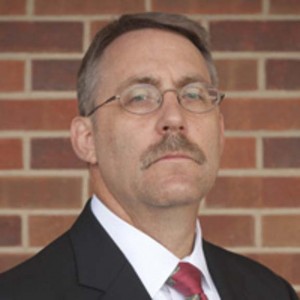Professor challenges the university’s gun-free policy with lawsuit
Via Kelly Riddell at The Washington Times
Missouri is getting its first test on it’s newly amended constitution that called for “strict scrutiny” of gun restrictions. Associate professor of law Royce de R. Barondes at the University of Missouri is filing a lawsuit against the college for prohibiting firearms.
The lawsuit calls for that strict scrutiny of college firearm rules and claims that they are unconstitutional after the 2014 revisions on the Second Amendment.
“This case is an opportunity for good constitutional jurisprudence with us passing an amendment to our constitution last year,” said Jennifer Bukowsky, who is representing Mr. Barondes in the lawsuit. “The university’s rule is so obviously in violation of our state’s constitution, we see this case as being the best vehicle to protect one of our nation’s very first freedoms — our freedom to self-defense.”
Many other schools and colleges across the state are making the change to arm and train teachers. This article calls to light an incident with a violent man who assaulted women on University of Missouri’s campus and wasn’t stopped until a woman pulled out her gun from her purse and he ran away.
 Getting rid of gun-free zones and allowing people to protect themselves would reduce crimes and tragedies on campus. This supports the claims from a woman who left her gun at home to go to her gun-free campus and was raped at gunpoint, she blamed the laws for her rape and called for the ridding of gun-free zones.
Getting rid of gun-free zones and allowing people to protect themselves would reduce crimes and tragedies on campus. This supports the claims from a woman who left her gun at home to go to her gun-free campus and was raped at gunpoint, she blamed the laws for her rape and called for the ridding of gun-free zones.
Its prime time for more people to begin challenging gun free zones, many are starting to see that they do nothing but allow for the victimization of innocent and disarmed citizens who could normally protect themselves. Other college campuses and schools have seen a decrease of crime after they do away with gun-free zones, and 92% of mass shootings since 2009 have occurred in gun-free zones. America should be catching on to these facts and taking action like this college professor.
Lawmakers in 14 states are currently pushing bills to allow concealed carry on a college or university, and in June, Texas Gov. Greg Abbott signed his state legislature’s bill into law. Last year Missouri lawmakers passed a bill allowing specially trained school employees to carry concealed guns on campuses.
But Ms. Bukowsky thinks students’ and professors’ right to carry is implicit through the state’s amended constitution, and therefore is challenging the university’s code prohibiting it.
“We aim to act to give actual content and impact to our amended constitution, so we’ll have more vibrant gun rights in the eyes of the law and give the actual voters what they voted for in amending the constitution,” Ms. Bukowsky said. “We need to get the facts before the court so they can be interpreted more favorably toward those who lawfully possess firearms.”
Mr. Barondes is a concealed carry permit holder in the state of Missouri. He also teaches a course on firearms law and has received extensive training on the safe handling and use and tactics of lawfully using a handgun, Ms. Bukowsky said.
The University of Missouri spills into the township of Columbia and owns many properties around town, making it unlawful to carry in much of Columbia, Ms. Bukowsky said. In addition, the area has seen its fair share of crime, with people wanting to arm themselves for self-defense, she said.
In April, Mark Adair was shot and killed by law enforcement in a university parking garage. In the 24 hours before, he had attacked three women in three different places. Mr. Adair hid in the backseat of his first victim’s car while she was shopping for groceries. When she came out, he “displayed a gun and pressed the gun against the side of her chest,” according to a Columbia Police Department Offense Report of the incident.
It was only after the first woman “pulled a Smith and Wesson Model 642 handgun out of her purse,” and displayed her firearm, that the “assailant disengaged and ran away,” according to the police report.
“The university is trying to disarm law-abiders and, in doing so, is making them more vulnerable to the lawbreakers,” said Ms. Bukowsky. “They’re making this [self-defense] choice for me, and we can’t make that choice for ourselves.”
Shannon Watts, the founder of Moms Demand Action for Gun Sense in America, disagrees, and says that more people being allowed to carry on campus won’t reduce crime, but may increase it.
“If you ask the real experts — those who will be impacted by dangerous campus-carry laws — 78 percent of students, 95 percent of college presidents, and 89 percent of police chiefs agree that more guns on campuses are not the answer to keeping women safe,” she argued in a February editorial. “That’s because campuses are rife with alcohol, drugs, and depression: a dangerous recipe that may be made deadly by adding guns to the mix.”
However, since the fall semester of 2006, Utah has allowed concealed carry on its nine public colleges, and one public technical college, with no uptick in gun-related violence.
In addition, concealed carry has been allowed on the two Colorado State University campuses — in Fort Collins and Pueblo — since 2003 and 14 Colorado community colleges since 2010. All Mississippi public colleges have allowed campus carry since 2011 and, as of last year, all Idaho public colleges have allowed it, with no major incidents.
“No state has seen a resulting increase in gun violence as a result of legalizing concealed carry (all 50 states now allow some form of concealed carry), despite the fact that licensed citizens regularly carry concealed handguns in places like office buildings, movie theaters, grocery stores, shopping malls, restaurants, churches, and banks,” according to the group Students for Concealed Carry, which advocates for concealed carry rights on campuses.
According to studies by the National Academy of Sciences and the Harvard Injury Control Research Center, no evidence has been found that licensed concealed carry leads to an increase in either violent crime or gun deaths. The latest victory for Students for Concealed Carry was when Mr. Abbott signed the Texas bill in June despite some top universities pushing back against the policy. The bill contains a carve-out that allows schools to create “gun-free zones.”
Back in Missouri, Ms. Bukowsky feels confident in her case.
“Faculty, staff, citizens, everyone on the University of Missouri isn’t armed, and the bad guys know that,” Ms. Bukowsky said. “It’s a target-rich environment. We’ve seen a lot of developments, statutes such as in Texas — and passing campus carry laws in other paces. So there’s been others before us.”
The case Royce de R. Barondes v. Timothy M. Wolfe and the Curators of the University of Missouri was electronically received at Cole County Circuit Court on Saturday and accepted into the court Monday.






